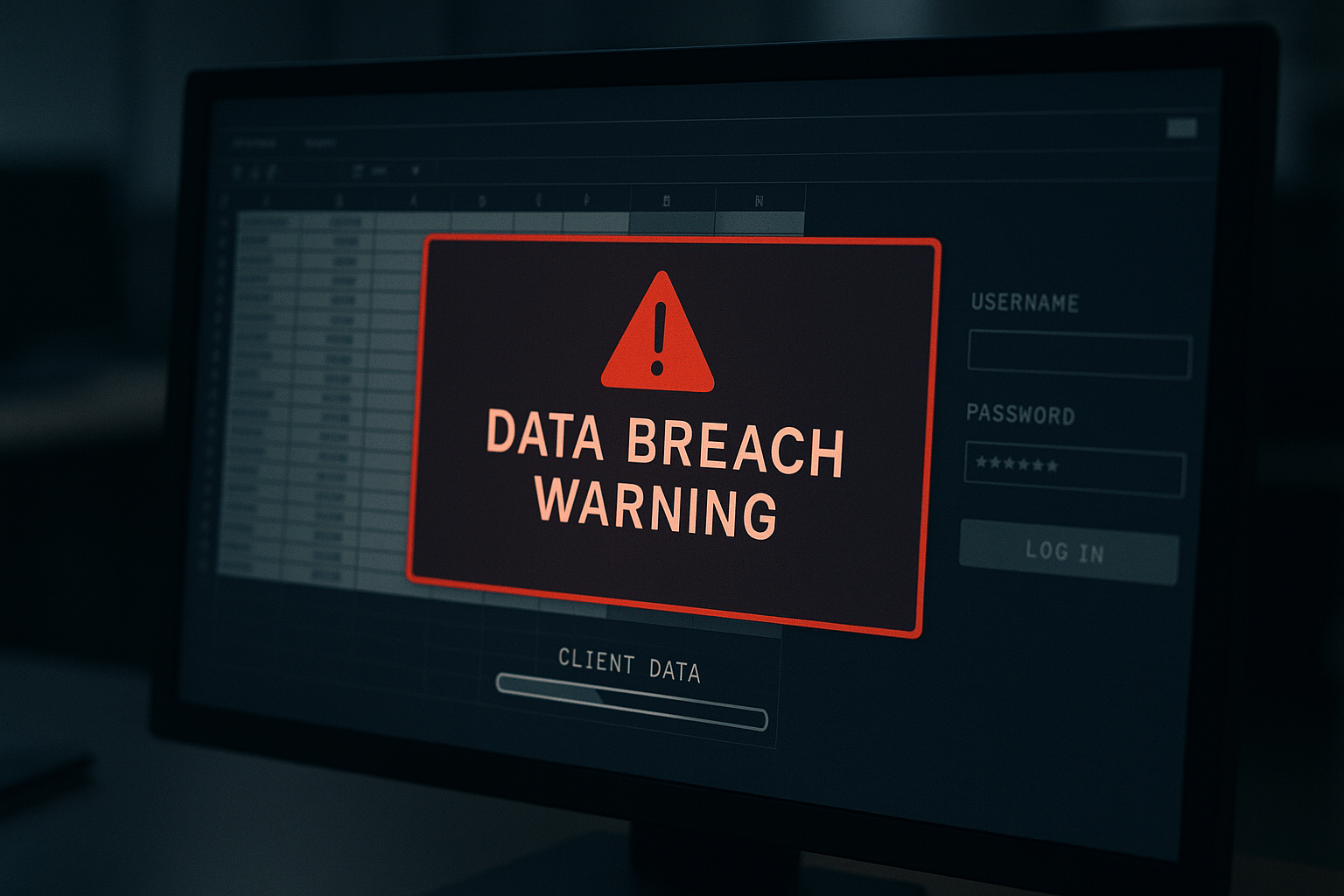When a Data Breach Turns Into a Legal Problem
If you work in IT or manage tech for clients, you are already thinking about security. Backups, antivirus tools, firewalls, quick responses when something goes wrong — it is part of the job.
But there is another side to a data breach that does not always make the checklist: the legal obligations. Ignoring them can cause just as much damage as the breach itself.
The law you cannot ignore
Under Australia’s Notifiable Data Breaches (NDB) scheme, certain breaches must be reported to both the affected individuals and the Office of the Australian Information Commissioner (OAIC).
That means it is not just about fixing the tech problem. If the breach is eligible under the scheme, there are strict steps and deadlines to follow.
What actually counts as a breach
A breach is not only a large-scale cyberattack. It can be surprisingly everyday.
We have seen breaches caused by:
A lost USB with sensitive client files
A stolen laptop from an employee’s car
A hacked email account used to scam customers
A client database exposed due to a misconfigured setting
Accidentally sending personal information to the wrong recipient
The rule of thumb: if the breach is likely to cause serious harm, whether financial, emotional, reputational, or otherwise, it is probably reportable.
The clock starts ticking
Once a breach is discovered, the NDB scheme does not allow for long delays. If serious harm is likely, the business must notify affected individuals and the OAIC as soon as practicable. That is often within days, not weeks.
And that is where you, as an IT provider, can add real value.
How to help clients avoid a legal scramble
You do not need to manage the legal disclosure yourself. But you can help your clients be ready before a crisis hits by:
Making sure they have a data breach response plan that includes legal reporting steps
Confirming who in their business is responsible for handling the legal notifications
Suggesting they pre-prepare templates for notifying affected customers and the OAIC
Encouraging them to test their breach response, just like they would test a backup
Why this matters for your clients and for you
A fast, compliant response can protect your clients from heavy penalties, bad publicity, and a loss of customer trust. From your perspective, it means you are not left trying to fix tech issues while they are scrambling to work out legal obligations under pressure.
“A data breach is stressful enough without the added chaos of figuring out the legal side at the last minute.”
DISCLAIMER
The content given herein is provided for information purposes only. It is general in nature and does not constitute legal advice and should not be used as such. Formal legal advice should be sought in particular matters.
Connected Legal + Commercial does not accept any liability to any person for the information (or use of such information) which is provided herein or incorporated into it by reference.
The information is provided in good faith on the basis that all persons accessing the content undertake responsibility for assessing its relevance and accuracy and will seek appropriate formal legal advice accordingly.


